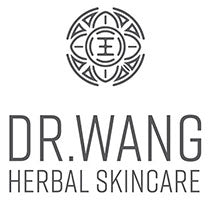Traditional Chinese Medicine (TCM) is an ancient form of healing and medicinal practice which dates back an estimated 2,500 years. TCM is based around the concept of qi, which is the essential energy existing within all living things.
There are millions upon millions of people who continue to use TCM for holistic health to this day. In our modern world based on technology and research, this begs the question: How does Traditional Chinese Medicine stack up?
Today, we will be defining Traditional Chinese Medicine, reviewing some research on the efficacy of TCM practices, discussing when and who should consider TCM, and how to choose the best TCM practitioners and products.
What is Traditional Chinese Medicine (TCM)?
As mentioned in the introduction, TCM in centered on treating the body’s qi, or life energy. Many adherents believe that qi flows through the human body and is responsible for their emotional, physical, and spiritual well-being.

It is important to understand that trying to define TCM is a difficult task. Ancient Chinese Medicine has been evolving and branching off for millennia. Ask any two TCM practitioners the same question, and you might get two different answers.
The key difference in philosophy between Western medicine and TCM is symptom treatment vs. holistic approach to health. Western medicine is primarily focused on diagnosis and treatment. TCM takes a more holistic approach, “treating” individuals’ overall health in an effort to prevent illnesses in the first place.
Scientific Research on TCM Efficacy
According to the National Center for Complementary and Integrative Health, there are three well-researched areas of Traditional Chinese Medicine:
Chinese herbal remedies are one of the pillars of TCM. Countless herbs and herbal blends have been studied “for many medical problems, including stroke, heart disease, mental disorders, and respiratory diseases (such as bronchitis and the common cold).” Unfortunately, low quality testing has yielded inconclusive results in this area. Users should be careful to only trust reputable sources of TCM herbal products.
Chinese acupuncture has shown more concrete results. Studies suggest that professionally administered acupuncture may be effective in reducing pain and lowering the frequency, duration, and intensity of certain types of headaches.
Tai Chi is an ancient martial art which has developed into a low impact, stress relieving activity. Much like yoga, Tai Chi has been proven to reduce stress, improve balance, reduce pain, and several other benefits.

Should I Consider Traditional Chinese Medicine?
Most medical professionals agree that TCM is generally safe when administered by an experienced professional. However, it is certainly not for everyone. Consider asking the following questions before seeing a TCM specialist:
- Do I have a diagnosed acute illness or injury? Individuals with serious, acute physical ailments like cancer or a broken bone should opt for traditional, Western medicine for their primary care.
- Are my symptoms lingering without any definitive cause? TCM is ideal for nagging chronic problems, particularly when traditional medicine has failed. Western medicine has even shifted towards TCM ideals for prevention, stress reduction, and holistic methodologies. One major reason that TCM works well for chronic medical issues is that TCM adopts a holistic approach.
- Am I looking to improve overall health or deal with a specific issue? Holistic health has a litany of benefits which can dramatically improve our lives. TCM is great for preventing future illnesses by improving overall health.
- Is my health compromised due to a current condition? This can include women who are pregnant, the elderly, young children, or those who are currently being treated for other conditions. These individuals should at a minimum consult with their physician before considering TCM.
Not all TCM Practices are Equally Effective
Just as there are good doctors and bad doctors, good lawyers and bad lawyers, there are certainly good TCM practitioners and bad TCM practitioners. In reality, most TCM professionals will fall somewhere in between. We recommend finding a Traditional Chinese Medical practitioner who is experienced, reputable, and preferably has a modern medical background as well.
It is important to understand that “non-traditional” treatments do not go through the same FDA approvals as most modern medical treatments. That is why it is vital to find a reputable practice before jumping into TCM.
The same goes for East Asian products such as beauty products. There are thousands of products on the market which are either ineffective or unsafe for use. On the flip side, there are plenty of TCM skincare and beauty products which have undergone rigorous testing to deliver high quality, affordable products which are safe and easy to use.

Combine TCM with Western Medicine for Skin Health and Beauty
Father and son duo Steven Wang, MD and Gui Wang, LAc have over 60 years of combined experience helping patients utilizing both Traditional Chinese Medicine (TCM) and modern medicine. We believe that utilizing the knowledge of both worlds can lead to true breakthroughs in the field of dermatology. Dr. Wang is a Chinese herbalist and currently holds the title of Director of Dermatologic Surgery and Dermatology at Memorial Sloan-Kettering Cancer Center in New York City. Gui Wang is a licensed acupuncturist with over 40 years of experience.
After years of focused testing, we are proud to offer a family of skincare products inspired by our love of holistic healing techniques. We offer products which are natural, effective, and never tested on animals.




